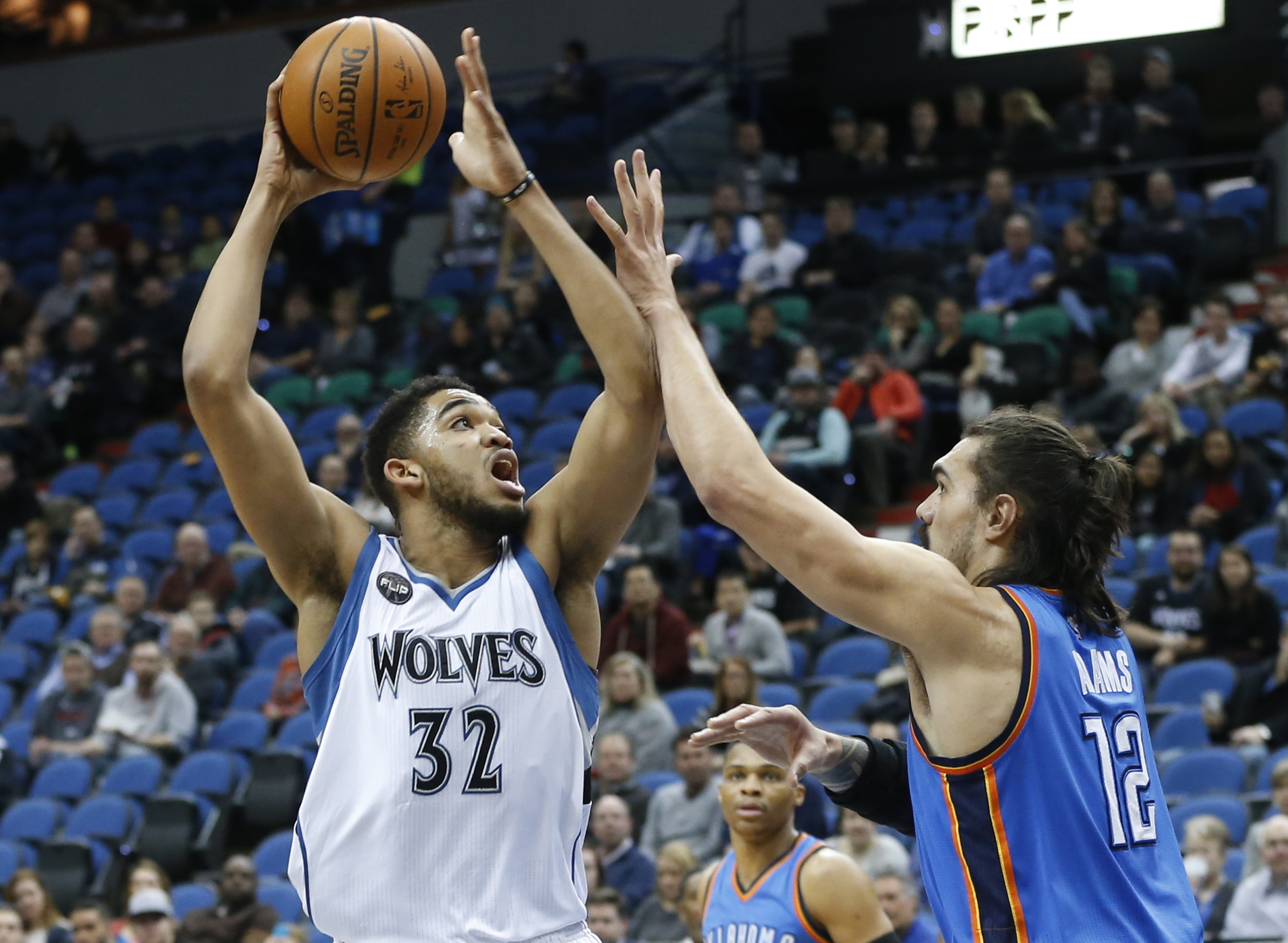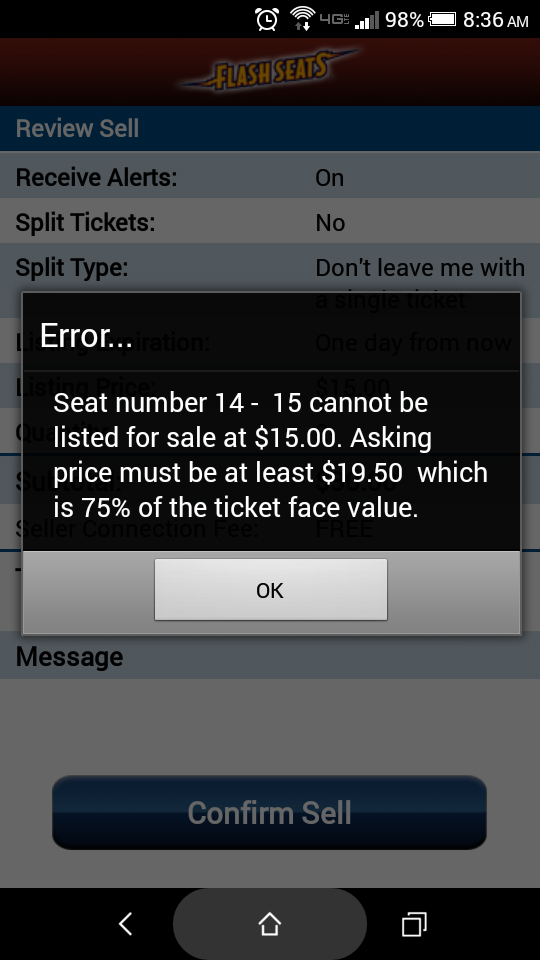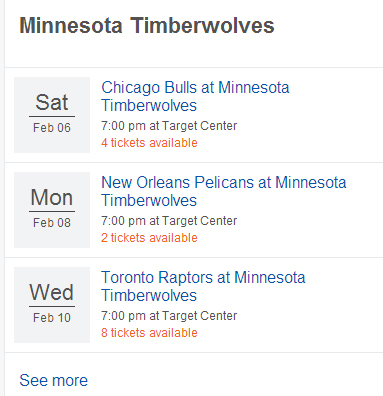
Although they’re the least supported major sports team in the Twin Cities, the Minnesota Timberwolves are quietly revolutionizing how you’ll buy tickets to sporting events, and, in the process, increasing the price you’ll pay.
The team, and its partner, the Minnesota Lynx, are the first franchises to successfully manipulate the “secondary” ticket market, eliminating competition from scalpers and services such as StubHub and Ticket King.
It was a clever and innovative method the team used. FlashSeats, a smartphone app that eliminated paper tickets in favor of a bar code on the phone, does not allow fans to print out the tickets, and that’s the genius of the strategy. By controlling how the tickets are transferred and used, the team keeps them out of the hands of scalpers and third-party dealers.
The team also gets a 15% price bump in the form of fees from fans who buy other fans’ tickets via FlashSeats.
Scalpers who once worked the skyways near Target Center are mostly gone now. They can get a few tickets from people who bought single game tickets, but the season tickets are mostly beyond their reach now.
With the team in control of the market, here’s what happens if a fan tries to sell a ticket for less than an arbitrary “value” set by the team.
You can thank the Cleveland Cavaliers for that “floor” in the resale price. One of the early adopters of FlashSeats (the owner’s company created the app), the Cavaliers didn’t set a floor for the resale of tickets. And the app was flooded with people who wanted to unload tickets for some games to help pay for their season tickets. Bad for them, good for fans looking for cheap seats.
“The reality of the situation is that hundreds of ticket brokers and speculators bought season tickets with the thought of making a fortune in the secondary market, and they are all now choking on tickets,” season-ticket-holder Jeffrey Thomas told Crain’s Cleveland Business last season, the first season of LeBron James’ return to town. “The typical transaction on Flash Seats is for far less than 50 cents on the dollar.”
That’s the marketplace setting the value of a sports ticket. But the free market is not friendly to bad teams.
So the Timberwolves, who angered the NBA a few years ago by lowering the cost of tickets to as little as $5, are attempting to eliminate the competition from the secondary market, the one thing that puts pressure on ticket prices in the primary market.
In an interview with the Pioneer Press’ Andy Greder earlier this week, Timberwolves President Chris Wright said the restriction on fans who want to resell their tickets was to “make sure that our tickets are not completely undervalued by the market.”
That’s an ironic statement, coming as it does from a franchise owned by Glen Taylor, a former Republican leader of the Minnesota House of Representatives who has generally embraced the economics of a free market.
But his strategy is working as evidenced by this screenshot today of what happens when a fan searches for a Minnesota Timberwolves ticket on StubHub.
StubHub, basically, is out of the business of selling Minnesota Timberwolves tickets.
Things are only slightly better at Ticket King, where only 8 sections in the upper deck have seats available for the upcoming game against Chicago. None of the available tickets is being offered for less than what the Timberwolves themselves are charging for the game.
It’s possible that one day none of this will matter.
Cleveland provides a perfect example. Because the team had a product in demand, the secondary market ticket prices were much higher than the primary market. In effect, the team left money on the table.
“You always say that, “Yeah, we could have raised prices and taken that revenue instead of letting the secondary market have it,’ but what we’re trying to do is have a reasonable-priced ticket,” Cavaliers owner Dan Gilbert told Crain’s. “We didn’t really raise tickets across the board at all this year.”
And that could someday happen here, too.
The Timberwolves might again be so good that it’ll be a hard-to-get ticket and, as a result, the marketplace will set a value that’s much higher than the face value of a seat obtained in the primary market.
That’s the kind of free marketplace at work that could make a team owner smile.
[Update 1:09 p.m.]– The New York Attorney General is investigating the NFL’s attempt to control the secondary ticket market, specifically because of the “floors”, Bloomberg reports:
NYAG’s concern with price floors is twofold. First, buyers of tickets on Ticket Exchange or other sites with price floors are frequently not informed that the tickets they are buying are subject to a floor. It is therefore easy for buyers to be fooled into believing what they are paying is the market price for a ticket, when in fact the buyer is paying a price artificially inflated by a price floor. The more aggressively sports leagues and individual teams push ticket buyers and sellers to use their “official” secondary markets, the more serious this problem becomes.
More fundamentally, even when buyers are informed of price floors, the floors deprive the public of a chief benefit of the market-driven approach taken by the 2007 law: lower prices. In particular, price floors may make it impossible to obtain tickets on the team-promoted Ticket Exchange platform for below face value when demand decreases. As described above, when contemplating the legalization of ticket resale, the sponsors of the 2007 legislature repeatedly expressed the hope that legalizing profit resale might lower prices for consumers. A clear source of such savings is lower prices when demand falls. For example, near the end of an unsuccessful baseball season, the tickets to watch a team not destined for the playoffs may go down sharply, allowing fans who otherwise might not be able to afford to see a match to buy tickets for far less money.
From the archive: Here’s to the ticket scalpers (NewsCut)


